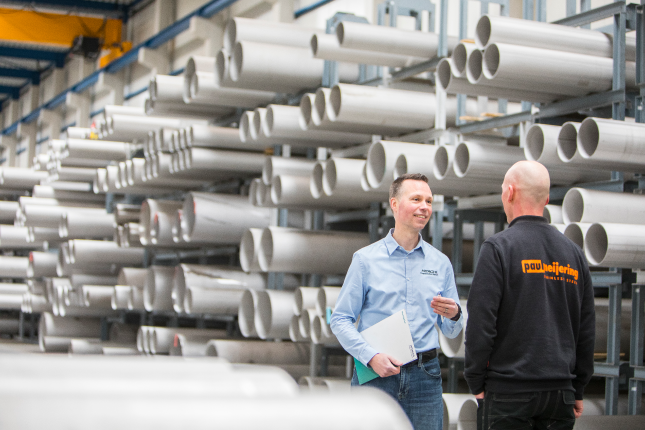Material mix-ups, mixed up or even forged certificates, and lost certificates and stamps are an unfortunate reality in manufacturing operations. When it comes to PMI (positive material identification) testing, it often is the case that from a batch of 500 incoming materials, only five are tested if that. But this is changing.
According to the 2019 Manufacturing Trends Report, modern manufacturers are no longer just makers, they are the thread that connects the entire lifecycle of a product, and to thrive in this modern environment, they must increasingly rely upon technology to power breakthrough innovations and drive more intelligent operations.
Thanks to the introduction of new technology for material analysis, more intelligent operations that allow productivity gains and increases in material and certification mix-ups, the trend we’re seeing is to test all 500 samples in a batch. This is termed ‘100% PMI’ and is already common practice within some manufacturing industries, such as aerospace and automotive. It’s all about reassurance and protecting company reputation.

100% PMI means that you go from testing a handful of samples to making hundreds or even thousands of measurements every single day. Sometimes the materials are tested during manufacture on the factory floor as well as raw material testing at goods-in. This gives you two challenges: how to physically carry out the testing and how to make sure the results of the tests are recorded and stored properly.
Your first thoughts might be that it’s too costly because you’d have to hire a lot more people and it would add too much time to your production process. In fact, rather than increase headcount, simply changing your analyzer could be the answer. Thanks to recent developments in laser-induced breakdown spectroscopy (LIBS) for example, the measurement times are as low as one second and you don’t have to worry about X-rays, so the sample can be held in your hand, making the whole process much faster than compared to a handheld XRF (X-ray fluorescence) analyzer.
Here’s a list of the main features you’ll need to look for in an analyser that supports 100% PMI:
We’ve explained the requirements for the analysers in detail in this post.
We have three portable analyser product lines that will help you achieve 100% PMI in your manufacturing processes. Each one works in a different way and has slightly different benefits:
Vulcan Range
One of the fastest LIBS metal analyzers around, with a one second measurement time. Ideal for incoming inspection and during the manufacturing process, you can even hold the sample in your hand while you measure it.
Find out more about the Vulcan range here
Vulcan
X-MET Series
A handheld XRF analyzer used by thousands of companies around the world. It’s completely non-destructive which makes it ideal for finished goods analysis as well as incoming inspection.
Find out more about the X-MET series here
X-MET8000
OES Master Series
The highest level of accuracy of the three measurement technologies. If you need low levels of detection for boron, carbon (including L-grades), nitrogen, sulphur and phosphorous in steel, then this is the analyzer you need.
Find out more about the OES Master Series here
OES Master Series
Don’t forget about data
ExTOPE Connect is ideal for managing large amounts of data, making notes and capturing images of the parts and materials measured. All data is stored in one, safe centralised location, which can be accessed from any computer, anytime and from anywhere.
ExTOPE